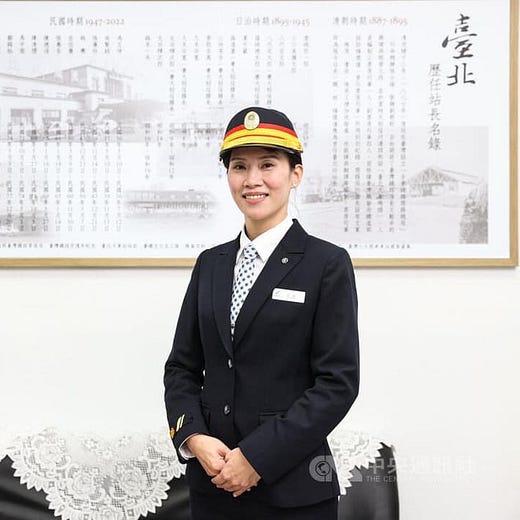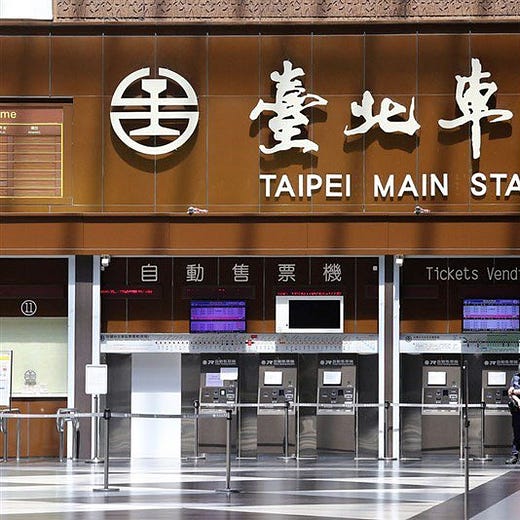Winter Games Wrap Up
And the talk is whether anyone had any fun or whether it was a PR victory for the PRC. Take your pick.
Of course the New York Times had to fidget the blade in on the way out:
‘With Olympics Closing Ceremony, China Celebrates a Joyless Triumph’
The Games ended without disaster but overshadowed by a doping scandal, rising tensions in Europe and anxiety over the future of the sporting movement.
I personally don’t recall anything “joyful” since mid-February 2020, when I had so much fun exploring Singapore’s Changi Airport that I missed my flight to Ho Chi Minh. Nothing of such nebulous rapture has seized my lapels since then – in fact, just getting up every morning is a “joyless triumph” – so I think maybe we could give China a bit of break – if for no other reason than they actually pulled the Olympics off.
It was a bumpy ride, though, what with the robot-made and -served “unfood,” and the doping scandal, the absence of snow and the genocidal gulag we’re not supposed to mention etc. A typical Twitter comment:
As for Olympic mascot Bing Dwen Dwen – perhaps China’s most significant export since gunpowder – the message was clear. “Thanks folks, I’m out of here!”
About that joint declaration with Russia
The Wall Street Journal is reporting that, even though a shared adversarial position on US hegemony is the sweet spot in the Sino-Russian “friendship”. China’s not too keen on an invasion that will likely worsen its relations with the US.
Behind the Beijing-Moscow joint stance against NATO enlargement is Mr. Xi’s eagerness to show solidarity with Mr. Putin as both countries’ ties with the US have soured, according to people with knowledge of Beijing’s thinking. Just as Russia is worried about threats to its security from any NATO expansion, one of the people said, China is concerned about ‘its territorial integrity as a result of the US meddling in Taiwan.’
‘They feel like they’re in the same boat,’ the person added. Beijing sees Taiwan as Chinese territory and bringing the self-governing island into its fold as part of Mr. Xi’s ‘China Dream’ of national revival.
But … It’s complicated, and it’s safe to say that over the seven days during which China’s Standing Committee eminent worthies were sipping tea behind closed doors they were earnestly seeking out a strategy that minimizes aggravating anyone.
While tilting closer to Moscow, the Chinese leadership still sees it in its interest not to have the bottom fallout of its ties with the U.S. It needs continued access to American financial and technological resources to ensure economic security and development—an access that could be jeopardized should Beijing decide to help Moscow evade sanctions in the event of an invasion.
It’s still Putin’s move, and if he does move on Ukraine it will inevitably put China in an invidious position – you can’t please everyone, and it doesn’t help if you’ve just spent the last five years trying not to please anyone.
Hong Kong’s viral meltdown
Bloomberg is calling it “complacency” – well, Bloomberg actually says that Hong Kong “squandered” its “covid edge”, its bureaucracy was caught on the back foot and now the hospitals are overflowing. And you know it really is bad when Xi Jinping feels obliged to intervene with a call from the capital.
Or does this Hong Kong crisis presage the death knell of China’s Zero-Covid policy?
Read the Washington Post on how China might topple as Hong Kong appears to be falling now. ChinaDiction’s take is Zero Covid is Zero Covid. However Beijing reacts, it will still be Zero Covid. Probably, the best that can be hoped for is Zero Covid with Chinese characteristics.
The Diplomat has an interesting piece on the possible political ramifications of what are being perceived in Beijing as Zero Covid missteps in Hong Kong.
On February 9, Tian Feilong, director of the Chinese Association of Hong Kong and Macao Studies, wrote an op-ed reiterating many of the points made by the People’s Daily, but he raised the vitriol and innuendo to a proverbial 11. Tian, who in a profile by the New York Times was noted as an adviser and champion of the central government’s hardening of policy toward Hong Kong, blamed the failure to carry out a zero COVID policy squarely on Chief Executive Carrie Lam and Hong Kong’s civil servants, whom he derisively referred to as Hong Kong’s “AO Party” (“AO黨們,” meaning Administrative Officers Party).
AO Party is not a complimentary term, btw, with connotations of allegiance to the former British bureaucracy combined with a CCP-loyalty deficit.
Meanwhile, Hong Kong has postponed the chief executive election to May 8 amid the Covid-19 surge with Carrie Lam citing Emergency Ordinance because the focus has to be on fighting the pandemic.
While we’re on the subject …
Where’s the latest Chinese vaccine? The New York Times has a great piece on the subject, but the reality is that all we can do is speculate. What on Earth are they up to?
China is so committed to competing with the United States and the West on science and technology that some in the scientific community say it is hard to imagine that the state hasn’t pulled out all the stops to develop a homegrown mRNA vaccine. That China has fallen behind on that front, and failed to approve a readily available foreign option, has left many experts baffled.
‘We don’t know how decisions are made nowadays in China, but a better vaccine would definitely help in maintaining a zero-Covid policy,’ said Jin Dongyan, a virologist at the University of Hong Kong who has urged his peers in mainland China to approve the BioNTech vaccine.
‘They are presenting to the world that they are doing well in vaccine development,’ he said of officials in Beijing. ‘And it would be embarrassing for them to show the opposite to the Chinese people.’
But there’s more to it than that:
Chains
The chained mother of eight story is now reaching epic online proportions, with some arguing the victim is the real “woman of the Olympics,” not thrice-medal winner Eileen Gu, who was probably starting to wonder what parallel universe she had stumbled into by the time the Olympics were ending today.
It’s a long and complicated story and I’m not going to attempt to sum it all up. Read Manya Koetse’s (@manyapan) piece on What’s on Weibo. It’s the kind of bizarre narrative that rarely leaks beyond China non-porous borders for consumption abroad.
The entire fiasco bristles with talking points, but one of them is that even with armies of censors laboring day and night, social media – even in China – demands content and the spark that lights a social-media conflagration could come from anywhere and at any time.
Other news
No, the clampdown on the private sector is not over. China has wiped $26 Billion off Meituan’s value with a new fee policy, reports The Wire.
It was the everything-app’s biggest tumble in seven months, as China issued “new guidelines asking for food delivery platforms to cut fees, showing that investor angst over the nation’s tech giants remains high,” The Wire reported.
Something cool for a change, Lithuania and Taiwan are cooperating on semiconductors:
Freewheeling bastion of democracy, gender tolerance and high-tech wizardry, Taiwan – while we’re on the subject – also has a gangland problem with pigeons.
If you’re into geeky, eccentric Taiwan news, please read Michael Turton’s fantastic 2007 blog entry on Taiwan’s neglected pigeon sector.
Oh, and I can’t resist a third Taiwan story – it’s too feel-good to overlook. Taipei has a female station master – its first in 130 years.
Tragically, Uyghur translators are in short supply, as an ancient Silk Road culture disappears before our eyes.
And on that note, some Uyghur poetry – and it’s lovely stuff:
Book Review: The Long Game: China's Grand Strategy to Displace American Order (Bridging the Gap)
TL;DR. No, you’re not supposed to start book reviews like that, and it’s not entirely true anyway – I read a few chapters – but when a book of this sort announces its agenda in its early pages and there are 500 more pages to read, there’s a marked tendency among book reviewers to sit back and consider what those 500 pages could conceivably do to hammer the point home more clearly than it already has. Case in point, early in the argument (which twists itself into knots over the word “strategy”), The Long Game announces:
This book argues that, since the end of the Cold War, China has pursued a grand strategy to displace American order first at the regional and now at the global level.
Several pages later, it comes up again:
As US-China competition intensified over the last few years, a number of policymakers and scholars have frequently returned to the same question: “What is this competition over?” This book argues that US-China competition is over who will lead regional and global order.
In the face of such a bold, unfiltered thesis, ChinaDiction can only recommend that readers shovel through the remaining 500 pages and decide for themselves whether the argument holds up over the long game.
Coda
Thanks to Hong Kong, we now know hamsters need to safeguard themselves and others from Covid-19 too. Apparently, Omicron is particularly tough on them:












